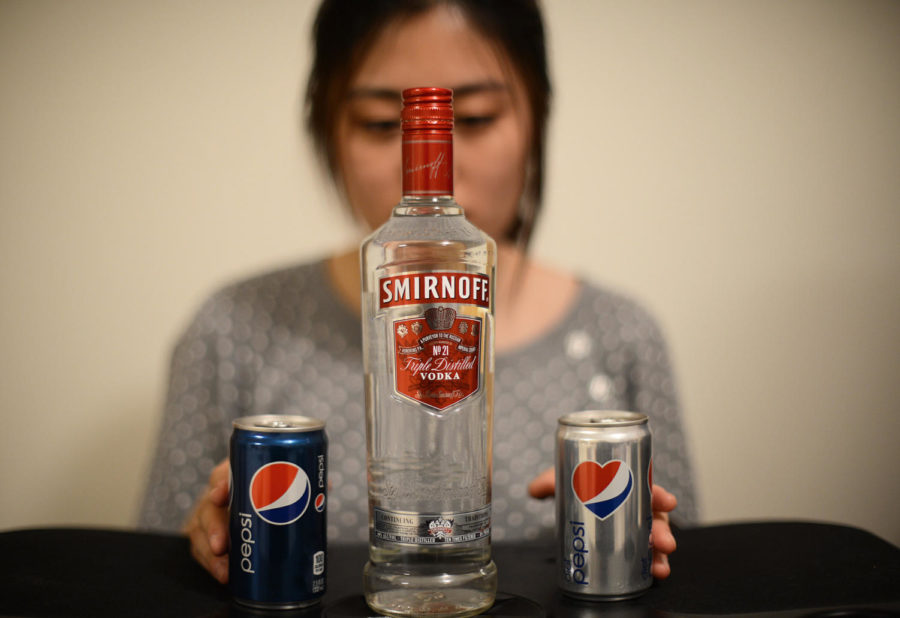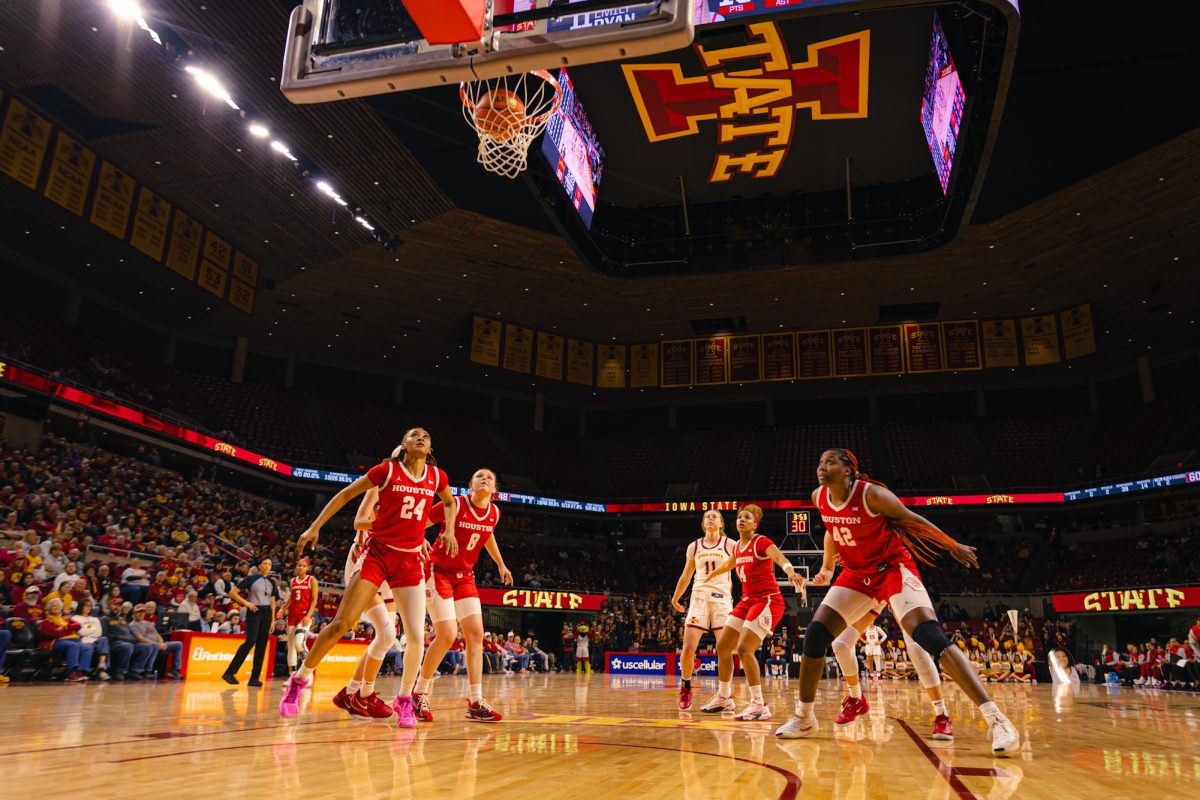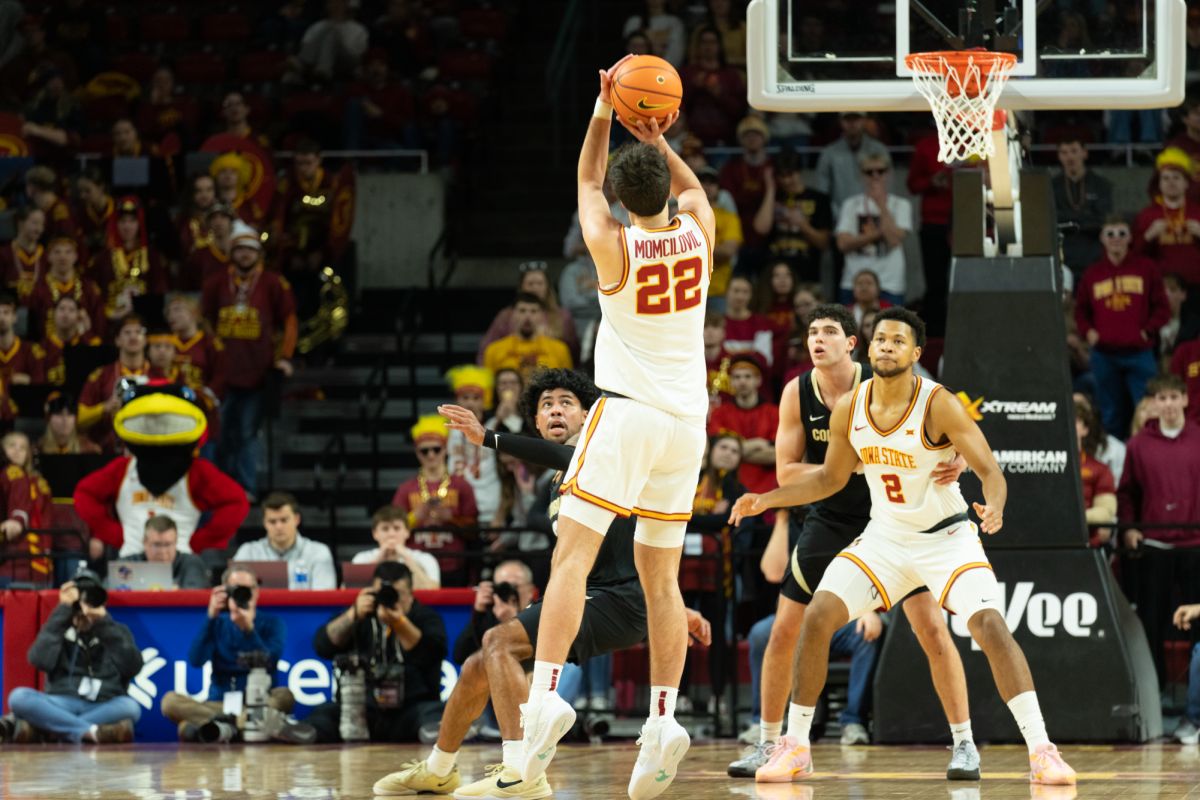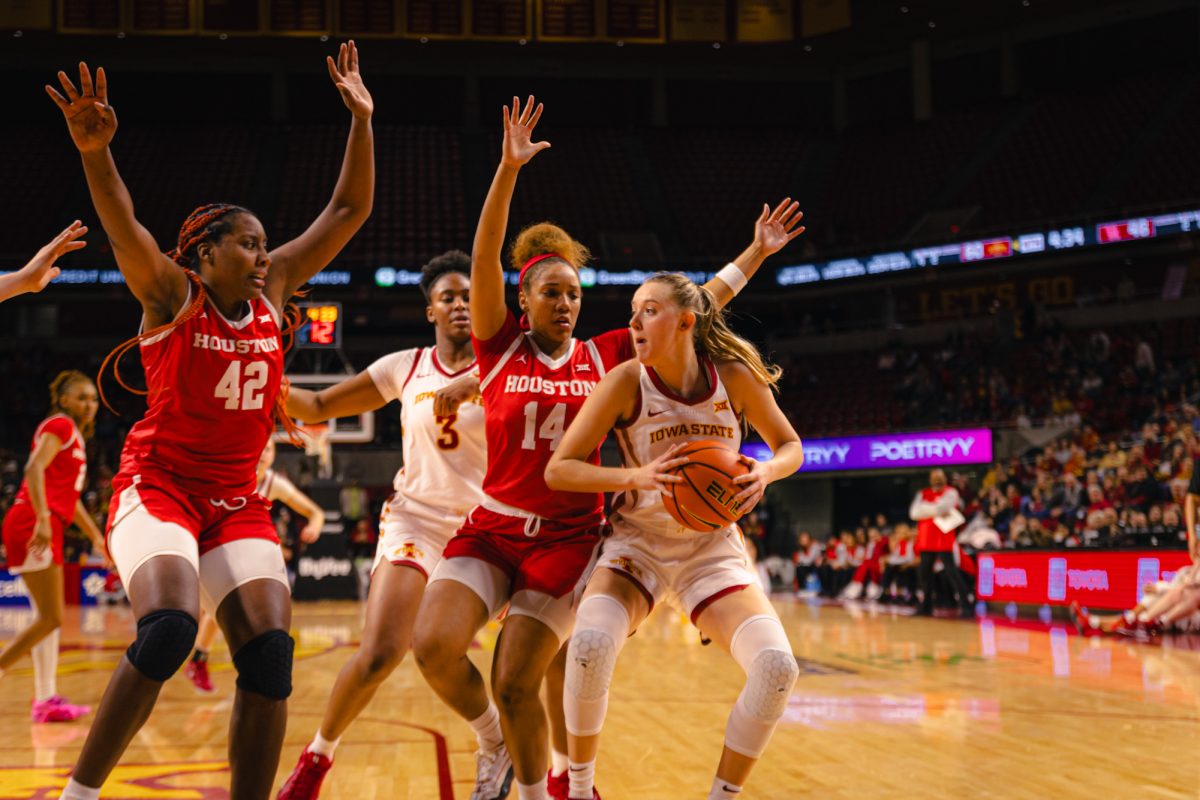Study shows drinking diet mixers increases blood alcohol levels
Photo illustration: Huiling Wu/Iowa State Daily
Researchers say that drinking vodka with diet soda will cause people get more intoxicated than drinking the regular soda.
March 11, 2013
Drinking diet pop instead of regular when mixed with alcohol results in higher blood alcohol levels, a recent study shows.
The study done by the Department of Medicine, University of Adelaide, Royal Adelaide Hospital, Australia, studied how artificially sweetened versus regular mixers increases gastric emptying and alcohol absorption.
Dr. Bryan Graveline, M.D., gastroenterologist at McFarland Clinic, explained why this happens.
“From the stomach, food or drink goes into the next organ, the small intestine, [which is] where nutrients are broken down into molecules. Then, they move across the wall into the bloodstream, and then, it is in our body,” Graveline said. “Say you have a drink of alcohol, it goes into your stomach; you’re not going to be intoxicated while it is in your stomach. It goes into your small intestine, then into your bloodstream and goes to your brain and the rest of the body.”
The study showed regular mixers take more time to empty the stomach than diet mixers. This causes less intoxication.
“If your stomach doesn’t empty quickly … the stomach has lots of enzymes called alcohol dehydrogenase that turns alcohol into acid acetaldehyde, which doesn’t cause any inebriation,” Graveline said.
When you are drinking diet mixers, the stomach takes less time to empty.
“The alcohol leaves [the] stomach and goes to small intestine, and it doesn’t have time to be broken down, and then you get the blood alcohol level,” Graveline said.
Essentially, if the stomach empties quicker, which the study shows it does with diet mixers, then the alcohol moves into the small intestine and more alcohol is moved into the blood stream, Graveline said.
Jason Crimmins, owner of Charlie Yokes, said that more drinks are ordered with regular soda. They offer diet Pepsi and diet Mountain Dew.
“We do get a lot more [requests] than you’d think for diet drinks. Basically, we’ve seen over the last two years, a big increase in mixed drinks period; rum and Coke especially,” Crimmins said.
Crimmins believes people do not change their pop preferences when using them as a mixer.
“We see more girls than guys ordering diet drinks. I think it’s whatever people drink normally,” Crimmins said. “A lot more people are drinking diet soda during the day than regular soda. If people drink diet Pepsi during the day, they will with a mixed drink.”
Chad Obrecht, senior in agricultural systems technology, was surprised by the study’s findings.
“I usually drink regular pop with my mixed drinks,” said Obrecht. “That actually surprises me a lot. I never would have thought that diet pop would increase your blood alcohol level.”
Crimmins and Obrecht both think students should be aware of this study.
“The consumer doesn’t have a way to know their blood alcohol level, so they are already handicaped,” Crimmins said. “Without having these tools, … knowing the results of these studies is absolutely beneficial.”
Graveline and Crimmins said they would like to see more studies done on this subject.
“I would like to see the results on vodka with cranberry juice or orange juice, a bloody mary or even energy drinks,” Crimmins said. “It poses a good question as far as what the implications are of what to mix your alcohol with.”







